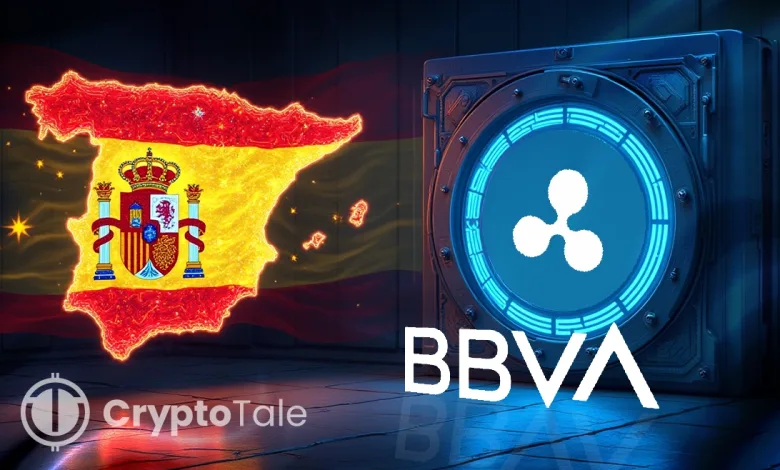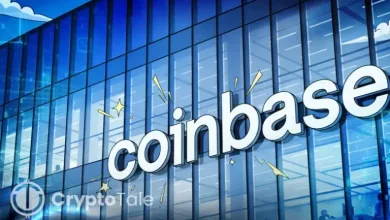Ripple and BBVA Partner to Expand Blockchain Payments in Spain

- Ripple and BBVA launch a digital custody deal, building crypto services for Spain.
- BBVA secures CNMV registration, becoming the EU’s first bank-approved crypto provider.
- Ripple strengthens role as key bridge for euro payments and tokenized settlements
Ripple, the leading provider of digital asset infrastructure for financial institutions, announced an agreement with BBVA to provide its digital asset custody technology to the Spanish bank. The partnership aligns with BBVA’s launch of a new crypto-asset trading and custody service for Bitcoin and Ether, made available to retail customers in Spain. The agreement allows BBVA to use Ripple Custody, an institutional-grade digital asset self-custody technology, to deliver a secure and scalable service for tokenized assets, including crypto-assets.
Ripple Custody was developed through Ripple’s acquisition of Metaco, a Swiss custody specialist that had previously signed BBVA as a client. This acquisition gave Ripple the institutional tools needed to support European banks under new regulations.
Cassie Craddock, Managing Director, Europe, at Ripple, said, “Now that the EU’s Markets in Crypto-Assets regulation (MiCA) is established across Europe, the region’s banks are emboldened to launch the digital asset offerings that their customers are asking for.”
BBVA Expands Digital Asset Services Under MiCA
Francisco Maroto, Head of Digital Assets at BBVA, said the integration enables the bank to “directly provide an end-to-end custody service” with the level of security expected from a major institution. He added, “BBVA has long demonstrated strong leadership in digitization and innovation, and the launch of our digital assets offering in Spain follows earlier offerings in Switzerland and Turkey.”
The timing of the deal aligns with the full enforcement of the European Union’s Markets in Crypto-Assets regulation. MiCA provides a standardized legal framework for digital-asset services across the bloc. BBVA also became the first EU credit institution registered as a crypto-asset service provider by Spain’s regulator CNMV.
From a technological perspective, BBVA’s use of Ripple Custody provides full control over its digital asset infrastructure. This avoids having to use third-party custodians and ensures stringent adherence to security and regulatory requirements. The mechanism offers a wide custody solution implemented right at the bank level.
Related: Ripple Expands RLUSD in Africa with Chipper Cash and VALR
A Broader Push Into Europe’s Financial Rails
This Spanish launch builds on the earlier milestones of BBVA. Since 2021, the bank has been active in Switzerland, offering crypto trading and custody for retail clients, and has also extended these services to Turkey through Garanti BBVA. In July 2025, BBVA introduced Bitcoin and Ether trading in Spain via its mobile app. Under the MiCA framework, this service is available to residents of Spain and is part of the first bank-led initiatives in the EU.
Ripple’s presence throughout Europe continues to expand. Along with BBVA, the company also partnered with Unicâmbio in Portugal, working with Ripple Payments to allow faster and cheaper transfers between Europe and Brazil. Such partnerships catapult Ripple into the role of a crucial liquidity bridge for euro-denominated transactions while simultaneously allowing it to perform tokenized asset settlement.
Considering Spain is among the top remittance and cross-border payment corridors of Europe, BBVA’s agreement can be taken as more than just a local rollout. It means deeper penetration of Ripple into the European Union’s financial rails, informing the institutional-grade adoption of blockchain technology. Could this first-mover advantage provide Ripple with the opportunity to run ahead of other SWIFT alternatives and competing stablecoin solutions in Europe’s evolving payments market?




